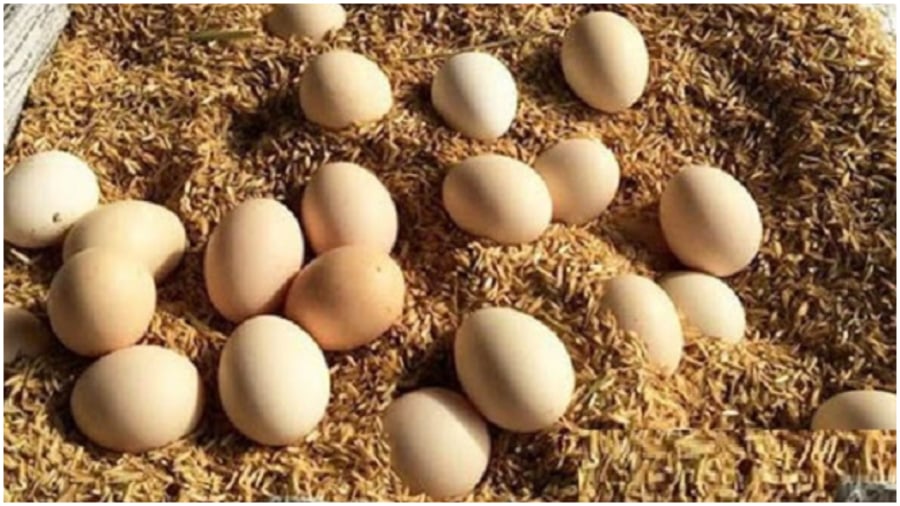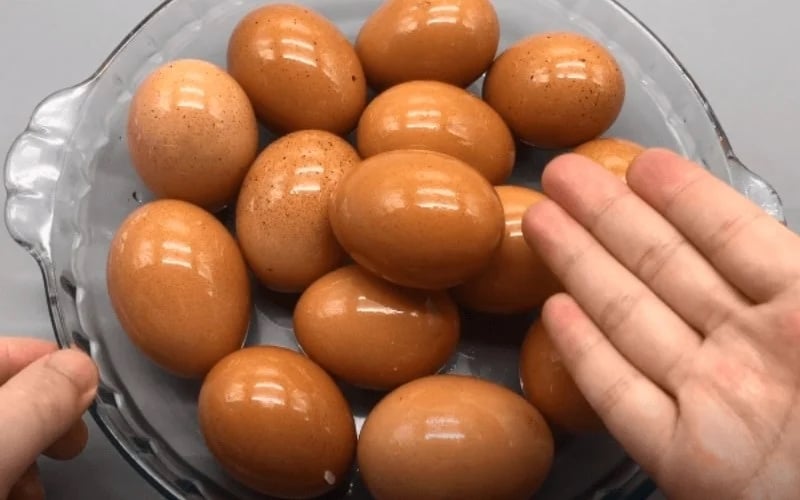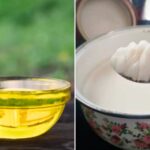Store Eggs in a Rice Bucket
One great tip for preserving eggs is to place them in a rice bucket. Eggs stored in a rice bucket can stay fresh for an extended period. Before placing them in the bucket, use a soft cloth to gently wipe away any dirt or residue on the eggshells. Then, crumple some soft newspaper and carefully wrap each egg individually. Arrange the wrapped eggs in a sparse basket and keep them in a dry, well-ventilated area. This simple trick can help keep your eggs fresh for 1-2 months without the need for refrigeration.
Additionally, you can try using a shell husk method. Place the eggs in a clean paper box, alternating layers of eggs with layers of husks. Keep this box in a dry and cool location. With this method, your eggs can stay fresh for several months. It is recommended to inspect the eggs every 20 days or so.

How to Keep Eggs Fresh for a Year
Use Dry Tea Leaves
Another clever way to keep eggs fresh without refrigeration is to use dry tea leaves. After enjoying a cup of tea, retain the tea leaves and spread them out to dry completely. Then, you can use these dry tea leaves to preserve your eggs, similar to how you would use husks or sawdust. Create alternating layers of tea leaves and eggs, and store them in a dry, cool place. This method can help keep your eggs fresh for 2-3 months.
Coat the Eggshells with Vegetable Oil
Apply a thin layer of vegetable oil to the eggshells and arrange them in a tray. Store the tray in a dry, well-ventilated area, maintaining a temperature between 77-90°F (25-32°C). This technique can help preserve the eggs’ freshness for about a month.
Whether you’re storing eggs with or without refrigeration, it’s best not to wash them. Instead, use a soft, damp cloth to gently wipe each egg clean.

Coating Eggs with Vegetable Oil for Preservation
Avoid storing eggs horizontally, as this can cause the yolk to stick to the shell and spoil faster. It’s best to keep them upright, with the larger end facing upwards. This positioning ensures that the yolk rises to the top and encounters the air pocket inside, preventing it from sticking to the shell.
When storing eggs in the refrigerator, avoid placing them on the door, as this area experiences temperature fluctuations and is often the warmest due to frequent opening. Instead, keep them in their carton or a plastic container with a lid in the main body of the fridge. Eggs stored this way will typically last for 3-5 weeks. Once removed from the fridge, eggs should be used within 2 hours.
The Secret to Tender, Fall-Apart Beef Without a Pressure Cooker
“Beef stew is a delicious and tender dish that’s perfect for family meals. But what if you don’t have a pressure cooker? Don’t worry, you can still create melt-in-your-mouth beef without any specialized equipment. With careful preparation and the right techniques, you’ll be able to serve up a mouth-watering beef stew that will have your family and friends asking for more. Imagine being able to transform tough cuts of meat into a delicious, fall-off-the-bone dish that rivals any restaurant. It’s time to unlock the secrets to creating this mouth-watering masterpiece.”






































